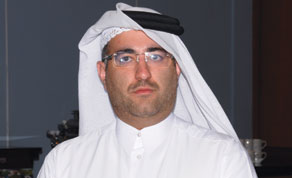 |
| Hassan al-Mulla, Qatar president - Institute of Internal Auditors |
Currently, more than 7% of the IIA’s established institutes around the world speak Arabic as either their primary or as a secondary language.
“The IIA Qatar joined the Middle East and Africa region in the Arabisation initiative by being part of the committee and funding to develop this. The Middle East Leadership Summit, where president and vice president of the IIA Global participated, prepared a memorandum and formed a task force. Hassan al-Mulla, the incumbent Qatar president, served as great resource for this major initiative,” said Sundaresan Rajeswar who represented Qatar in the Internal Audit leadership meet.
“IIA Institute leaders in a number of Arabic-speaking countries came together and committed to fully financing the project because of their strong belief that offering the exam in Arabic will lead to an increased number of certified individuals,” Kevin Rafiq, director, institutes relations, at the IIA, who works closely with institute leaders in the region, said, adding: “Consequently, this will create more awareness about internal auditing and assist these leaders in advocating for the
profession.”
Rafiq said that although the profession is growing in these countries, local leaders believe that it has not yet reached its full potential and that this will motivate internal auditors, especially those in the public sector, to seek certification.
The translation will also benefit several other IIA Institutes around the globe. Although not listed as the institute’s official language, several IIA Institutes around the world including Algeria, Egypt, Morocco, and Tunisia often offer additional services in Arabic. As the premier designation for practitioners, the exam presents formidable challenges even when taken in an individual’s native language, so this translation is a key step to positioning candidates for success. Great care was taken to ensure that the translation could have maximum application to Arabic-speaking registrants as Arabic has several different dialects. Each of the IIA Institutes that initiated and paid for the translation formed a “Glossary of Terms” committee whose focus was to agree on a unified bank of terms from the many Arabic dialects to be used as the basis for the translation.
“The ability to take an exam as rigorous as the CIA in one’s native language is a huge step forward in the globalisation of the certification programme and it demonstrates the growth of the IIA in these countries,” said IIA vice president of global relations Sylvia Gonner.
“Our Institutes are also making great strides in translating the International Professional Practices Framework (IPPF) and ensuring that certification review materials are available, as these are essential pre-requisites to offering the exam in a new language,” the official added.

